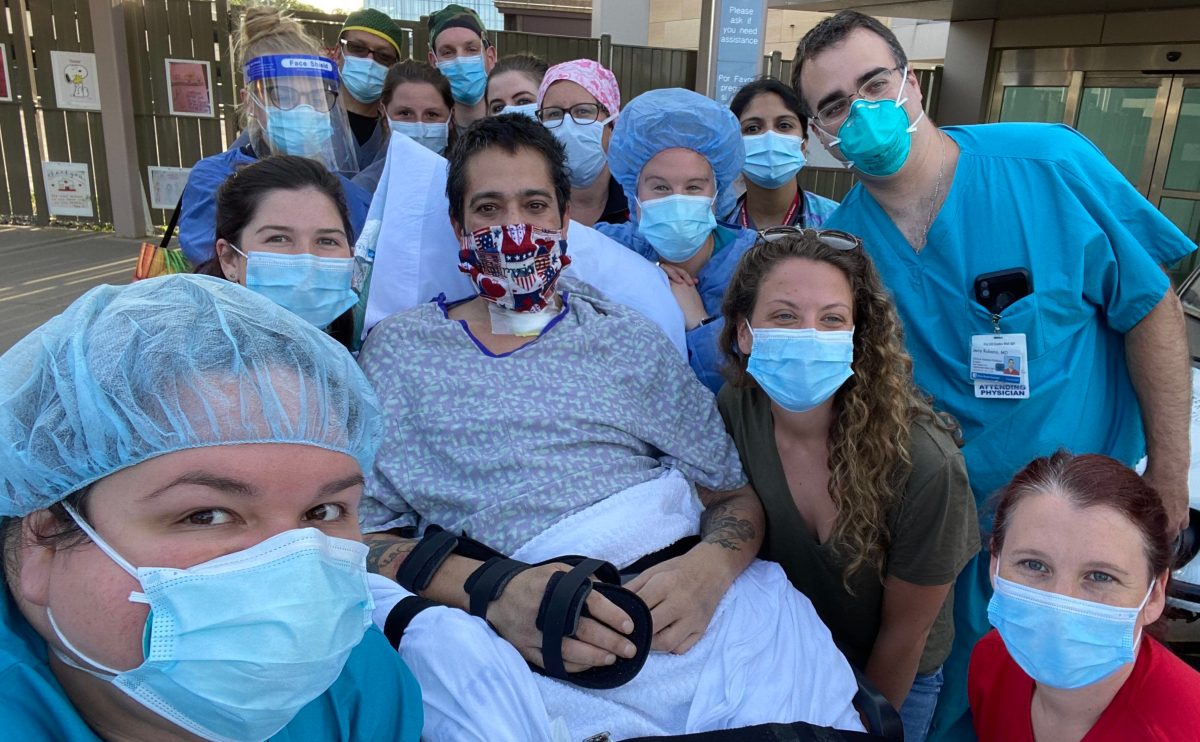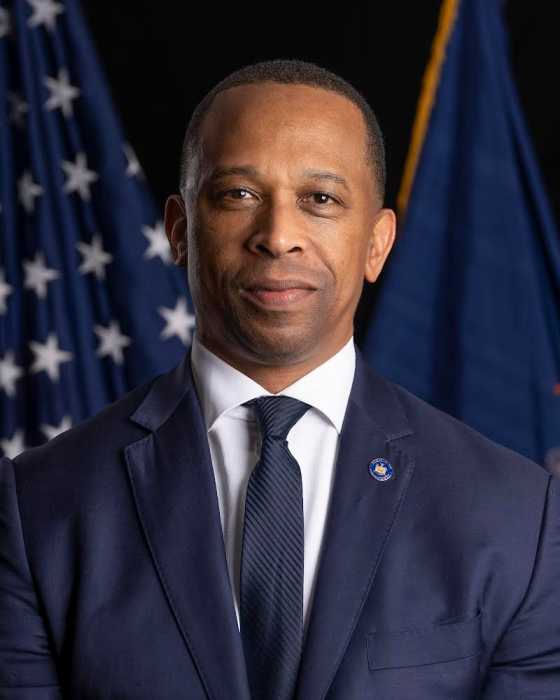A 48-year-old veteran from Bellport diagnosed with coronavirus was recently released from Stony Brook University Hospital after spending seven weeks on a ventilator — despite the 20 percent survival rate for those intubated for treatment of COVID-19.
Gary Degrijze was admitted to Stony Brook on March 22 after visiting both an urgent care and an outside hospital with no improvement.
“It was getting harder and harder to breathe,” he recalled. “It was lights out. I don’t remember anything that happened while I was intubated for about two months.”
Dr. Jerry Rubano, a trauma, acute care, and surgical critical care specialist in the Department of Surgery at Stony Brook Medicine, cared for Gary the majority of his time at the hospital.
“Gary had an exceptionally rocky course,” said Dr. Rubano. “He’s one of those people who’s really not just lucky to be here, but it’s kind of incredible that he’s still alive and doing as well as he is after all he’s been through. When he was in the ICU, he lost his pulse at least two times.
“His ventilator was on salvage mode,” the doctor continued. “His kidneys stopped working for about a month where he was on continuous dialysis and his lungs were probably some of the worst that we’ve seen. He was as sick as can be.”
Dr. Rubano and his team were in constant contact with Degrijze’s family giving them daily updates on his condition.
“I didn’t have to wait for them to call,” said Ana Degrijze. “I had a nurse calling me every day after the rounds were done. I thought that was so great.”
This process was started in Gary’s unit by Stony Brook’s Trauma Program Manager Jane McCormack. She rounded with doctors each day to be able to give families accurate and timely updates daily.
Following a tracheostomy, Gary was able to push through and was taken off the ventilator on May 11. He was decannulated before he left the hospital. Soon after he was taken off the ventilator he was finally able to see his wife and four children again after two months thanks to FaceTime.
“People started using the technology we take for granted to reconnect families,” said Dr. Rubano. “It was pretty emotional seeing these reunions, a wife or husband getting to see their loved one after such a long time.”
When Gary couldn’t see his loved ones in person, he at least had a team of people at Stony Brook supporting him.
“The nursing staff and doctors we’re like longtime friends,” said Gary. “I can’t even begin to explain what it was like to have them by my side.”
After being discharged on June 5, Gary is now in rehab, where he hopes to regain motion in arms lost while on the ventilator. His goal after recovery, to be able to serve another five years in the Army Reserve and retire after 20 years of service.
“Gary has truly made a remarkable recovery,” said Dr. Rubano. “His determination and the dedication of the team taking care of him have made all the difference.”
Related Story: As Virus Advances, Doctors Rethink Rush To Ventilate
For more coronavirus coverage, visit longislandpress.com/coronavirus
Sign up for Long Island Press’ email newsletters here. Sign up for home delivery of Long Island Press here. Sign up for discounts by becoming a Long Island Press community partner here.






























